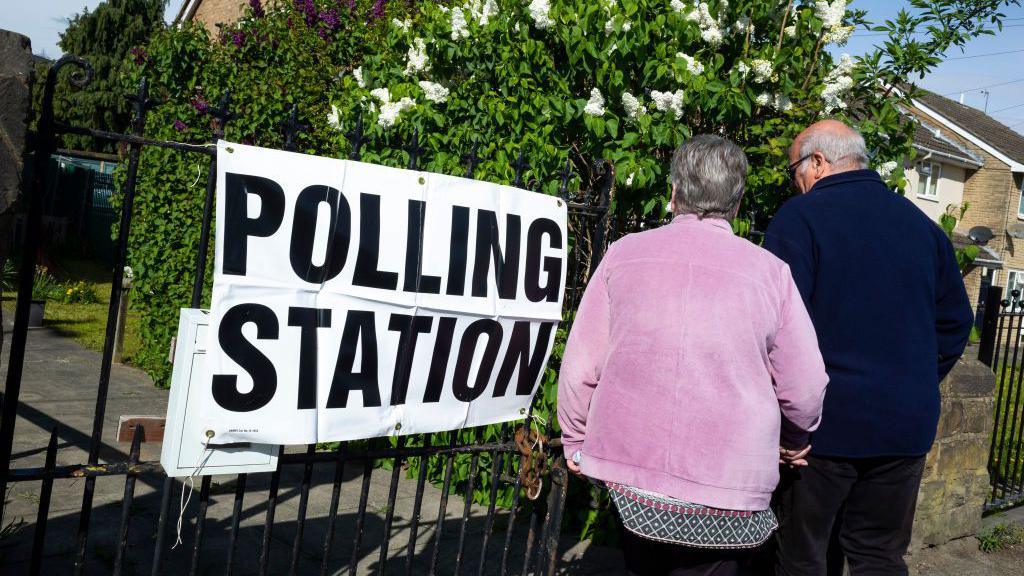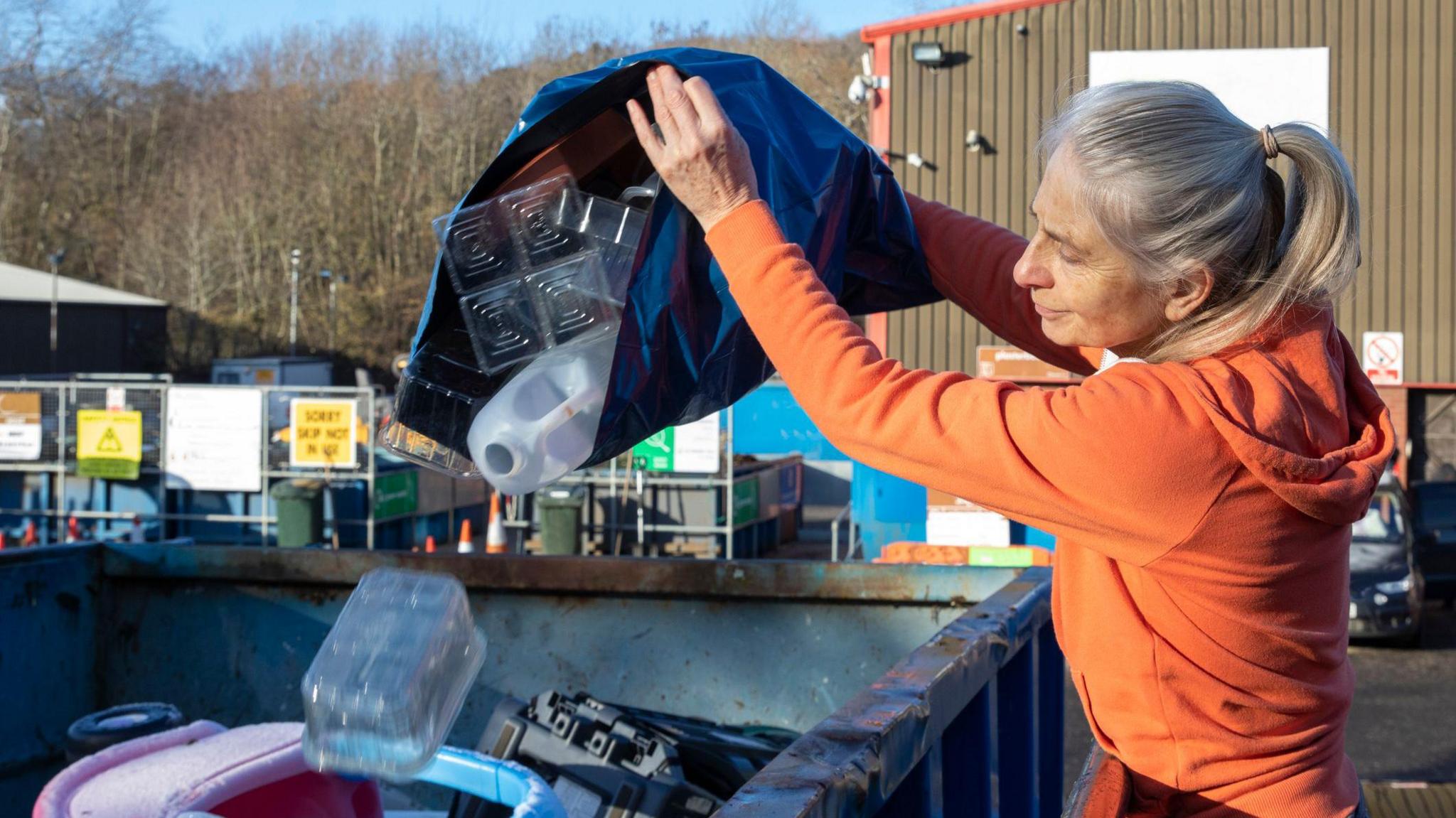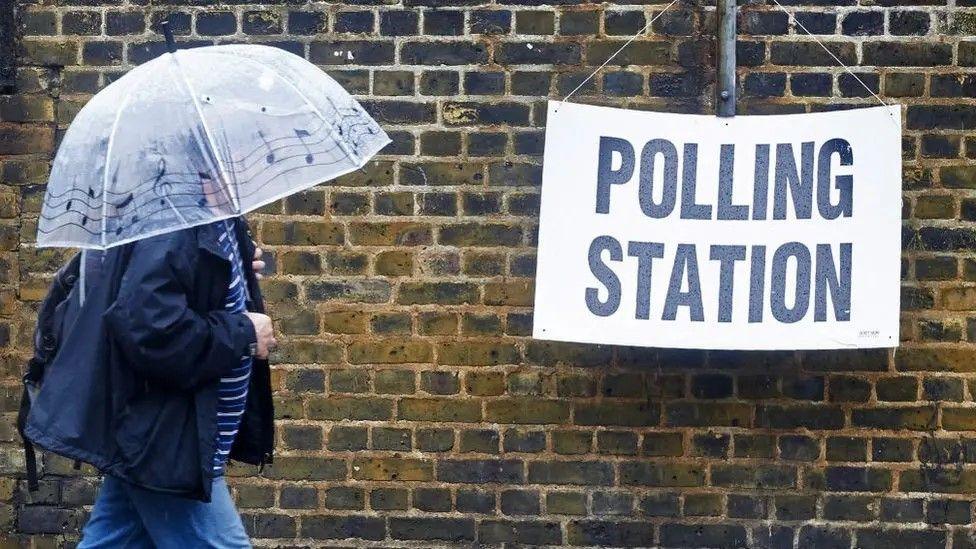What does your council do for you?

Councils provide a range of services, from social care to school places
- Published
The 2025 local elections are fast approaching, with voters in Shropshire, Staffordshire, Warwickshire and Worcestershire heading to the polls on 1 May.
Full council elections in these areas take place every four years, external.
The services that they provide depends on what type of authority your local council is, external.
For example, Shropshire Council, external is a unitary authority, which means they provide all front-line local services - from kerbside bin collections, to social care, planning and council tax collections.
The elections in Staffordshire, external, Warwickshire, external and Worcestershire, external are all county council elections - these authorities are only responsible for services that apply across the whole of the county.
This includes education, transport, social care and libraries.
Other areas, like housing, planning applications, council tax collections and rubbish collections fall to district, borough, and city councils. This is because their areas have of two tiers of local government.
Below are some of the key issues that your local authority is in charge of.
Waste, recycling and rubbish

Depending on where you live, different councils may deal with your bins
Due to Shropshire being a unitary authority, they deal with all waste, external - kerbside or roadside bin collections, household recycling centres (HRCs) and waste management.
Staffordshire, external, Warwickshire, external and Worcestershire, external county councils deal with waste management, but not roadside bin collections.
So, they are in charge of things like your county's recycling centres.
Staffordshire County Council only deals with fly-tipping if it is causing a problem on roads, while in Worcester and Warwickshire, all fly-tipping needs to be reported to the local district or borough council.
Worcester County Council also monitors and manages 17 landfill sites for other local authorities.
The councils also issue things like skip licences.
Potholes
All four councils deal with potholes in their respective areas.
Repairs are prioritised on how much of a risk they are deemed to be. This could be because of their size, location, or the volume of traffic on the road.
The councils in Shropshire, external, Staffordshire, external, Warwickshire, external and Worcestershire, external each have reporting systems on their websites and have set targets about how quickly they aim to fix potholes
However, last month, concerns nationally about some councils' poor progress in fixing roads prompted the government to threaten to withhold millions of pounds in funding from the worst offenders.
According to data from the RAC at the beginning of last year, there were six potholes for every mile of road in England and Wales.
Some roads - like motorways - are not maintained by local authorities and instead the responsibility falls to National Highways.
Education

Local authorities must provide things like transport and free school meals to children who meet certain criteria
All four authorities provide education services in their areas.
This includes things like school admissions, transport and free school meal applications.
They need to make sure there are enough school places for children and young people in their areas, and are responsible for setting catchments.
Councils are required to offer free school transport to some students, based on requirements like how far away they live and their age, income, safety of their walking route, and special educational needs or disabilities (Send).
The authorities also have a range of responsibilities to support Send children, and make sure they can access suitable education - this includes schooling and childcare.
Adult social care
Adult social care can be for older people, those with a disability or long-term illness, or mental health problems.
Councils organise and fund support for those who cannot fund it themselves, and also organise care services for people who self-fund, as well as supporting those who are carers for an adult.
They fund it through a combination of grant money from central government and from local revenue, like council tax.
In recent years, council tax bills have shown a specific social care precept because of the huge drain on authorities' budgets.
Shropshire Council recently said social care accounts for as much as £4 out of every £5 of its overall budget.

- Published3 May

- Published22 March
